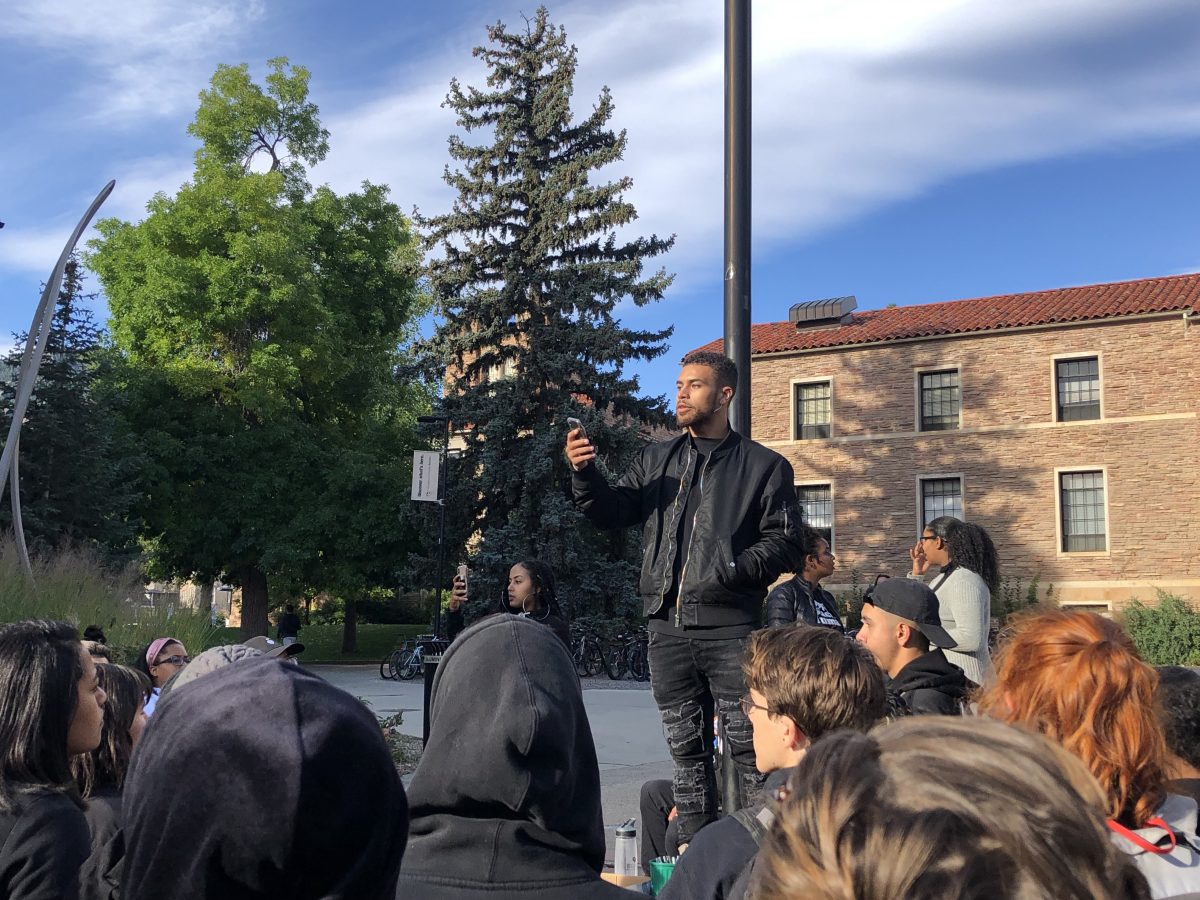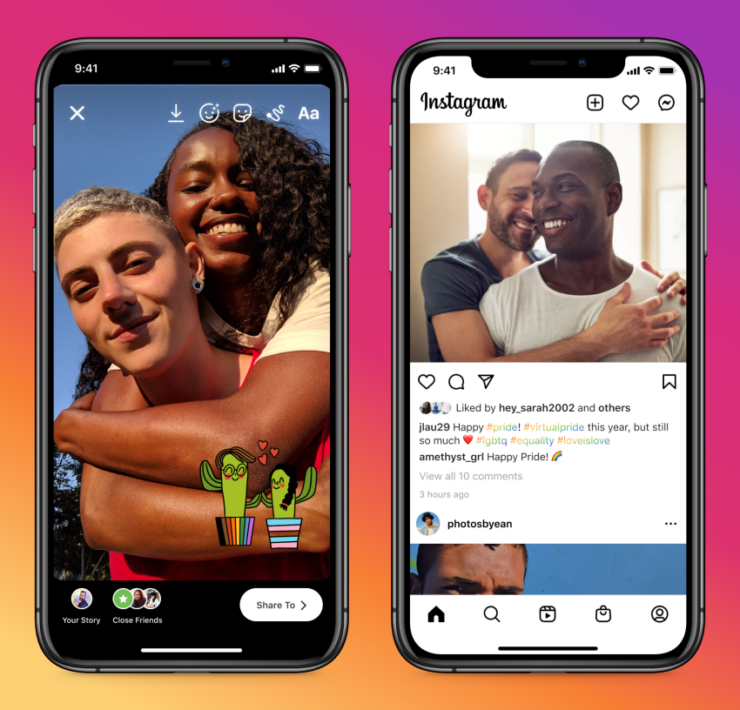Black Students Protest in Boulder: BSA “Demands Change”

After a racist incident on October 6, the Black Student Alliance at the University of Colorado Boulder held a protest. BSA demanded to be heard by Chancellor Philip DiStefano and mobilized students to attend the Chancellor’s State of the Campus address wearing all black. They proceeded to walk out after their concerns were not fully addressed by the Chancellor.
On October 6, Black students at CU Boulder were called the N-word repeatedly by an individual later found to be 33-year-old Rebekah Krajacic, who has a previous history of harassing other Black students on campus.
Krajacic repeatedly addressed the students with a racial slur as they were trying to study in the Engineering Center. Eventually, a professor intervened and asked Krajacic to leave.
The incident was caught on video and went viral shortly after. On social media, BSA (@blackbuffsCU on Twitter and Instagram) immediately asked students to share the story on social media.
Through an instagram story, BSA stated, “Being black is neither a crime, nor should it constitute a threat. Our students deserve to have spaces that are conducive to their learning and that are not interrupted by racists. We are demanding action.”
The following Tuesday, October 8, the Chancellor held his annual State of the Campus event. Armed police were at the event, which began late. The open conversation session was canceled.
Almost half of the people in attendance were the BSA and allied students, who wore black to make their concerns visible.
The Chancellor, who has worked at CU for 45 years, explicitly referred to the incident as racist in his speech and in an email to students. On Twitter, CU President Mark Kennedy stated that the incident “included racially hostile language,” and received criticism for his word choice and for avoiding labelling the event as racist.
DiStefano spoke about the racist incident and stated, “Our goal is to ensure that every person at CU Boulder has a safe, welcoming and supportive learning environment—and that racism and harassment have no place to hide.” He also stated that he and other administrators would meet and partner with BSA to address the issue of racism on campus.
After briefly speaking about the racist event, the Chancellor moved on to discuss the importance of mental health on campus and the University’s various accomplishments over the year.
During the panel, administrators briefly addressed a question about the racist incident, but redirected to the issue of mental health.
BSA and allied students walked out of the panel after feeling their concerns were not fully addressed. On social media, BSA said, “We showed out, and we walked out. We made it very clear that we will not tolerate avoidance of the conversation.”
The racist event at the CU Boulder campus comes on the heels of the Botham Jean sentencing. Botham Jean was murdered by a police officer who entered his apartment and shot him, thinking it was her apartment. She received a ten year sentence, according to NBC News.
BSA and the Black community at CU Boulder were affected and grieved both Jean’s death and the sentencing. BSA hosted an open meeting and discussion on Jean’s death on October 2; they invited allies to listen and discuss the trial as well as police brutality.
At the Jean event, many Black students communicated about feeling exhausted, disheartened, and angry about the trial, as well as the pain and difficulty of being Black at CU Boulder. Nonblack students of color and other marginalized students expressed solidarity, as well as shared pain of being brown and/or queer at CU.
After the racist incident, BSA made five demands. The first demanded that the individual who instigated the racist event be expelled and banned from all CU campuses. The second demanded that Mark Kennedy name and denounce the act of racism. The third demand was for the university to work with affected organizations to restructure policies to reflect zero tolerance of racism and harassment.
BSA also demanded the University create an initiative to denounce all acts of racism and white supremacy. The last demand was for the University to meet with BSA and allied organizations to develop better training for staff, faculty, campus police, and students.
On October 9, the BSA organized a “We Demand Change.” protest outside the building where BSA leaders were meeting with the Chancellor and other administrators. BSA reached out and consulted with leaders from other marginalized groups before meeting with the Chancellor.
The protest included chanting and speeches from BSA leaders as well as speeches from other groups present in solidarity. Representatives included those from the South Asian Student Association, International Socialist Commission, and Latino multicultural fraternity Sigma Lambda Beta.
One of the student body presidents from CU Student Government also spoke in solidarity. CUSG leaders also signed the letter of BSA’s demands and expressed their solidarity earlier in the week. In the past, CUSG has received criticism for not supporting or representing marginalized students on campus.
The CU School of Education, the Ethnic Studies Department, INVST Community Leadership Program, as well as the Center for Inclusion and Social Change have also expressed support for BSA and allied activists.
Lawrence, a member of queer fraternity Theta Pi Sigma, also spoke at the protest. He spoke about Theta Pi Sigma’s support of BSA, the violence Black, trans women experience, and the importance of queer solidarity for the Black community.
Lawrence said for him, it was important to attend the protest, “because these issues are similar issues to the ones that we face. We’re here because we think we should stand in solidarity for BSA because this is a horrible thing.
Lawrence followed with, “the justice that we are all looking for comes from the same place. It comes from the place of dismantling a system that wants us to not exist, that wants us to be erased.”
After meeting with the Chancellor, the BSA released a statement on the response to their demands. While the perpetrator was not a student, a statement regarding the perpetrator will still be released, and the administration will circulate the image of the perpetrator on campus. In address of the second demand, DiStefano “requested that he be held accountable” and will release a statement denouncing the act of racism. BSA will work with allied organizations to keep Mark Kennedy accountable.
In response to Demands III-V, the University and DiStefano agreed to “develop a compact aimed at restructuring campus policies that impact communities of protected classes.” In their second statement, the BSA stated that “the goal is to create a framework for implementing equitable policies and protections for ALL students.” The Chancellor has agreed to meet and work collaboratively with leaders of student groups on campus.
Kolondja Thillot, BSA Executive Board member, observes this week as a shift. Thillot stated, “As students and black students especially, I feel we are in a culture of losing and being unheard.” For him, the most important result of the meeting with the Chancellor was “the fact that our voices were being heard.”
It’s important that the entire queer community, especially white queer people, listen to and support Black activists in their work. Supporting the queer community means supporting the entire community, including our Black siblings. As Lawrence said, queer liberation is tied to Black liberation from white supremacy. OUT FRONT expresses solidarity for Black students at CU Boulder and the important work being done by the Black Student Alliance.









